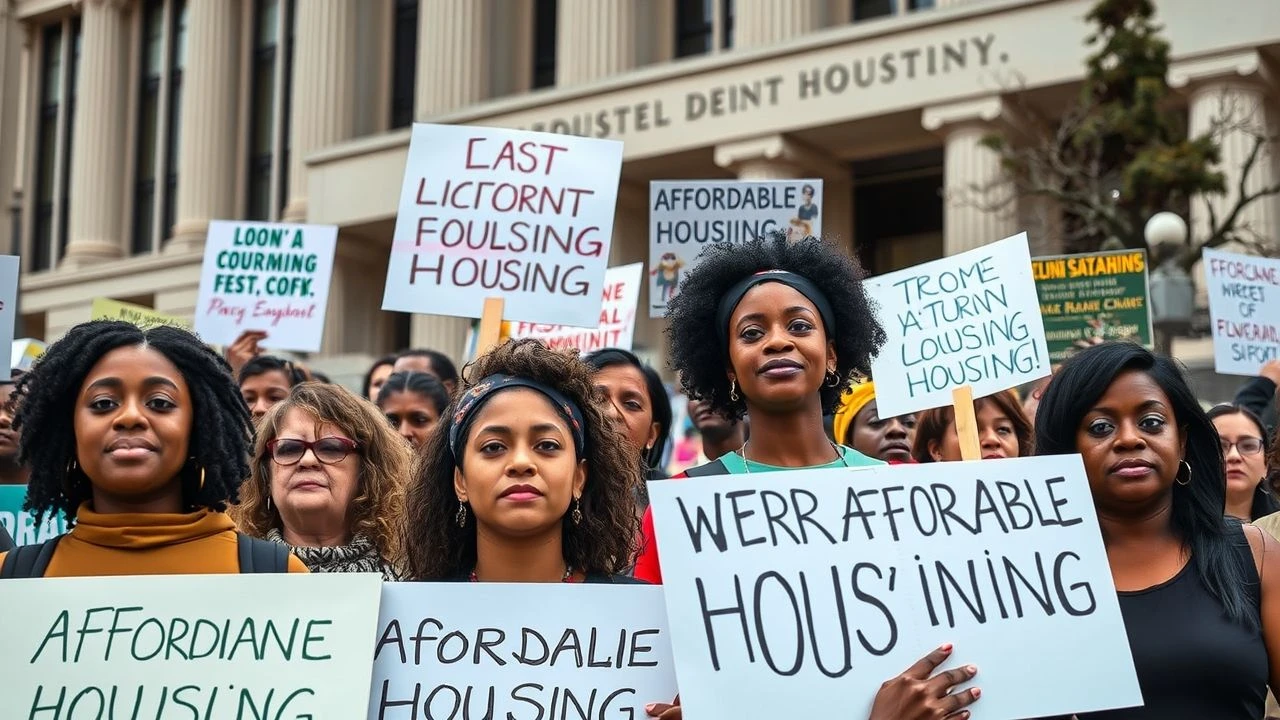
Reports from organisations like the National Low Income Housing Coalition highlight the chronic shortage of affordable rental properties, particularly for those on the lowest incomes. They routinely point to the fact that, in many areas, there simply aren't enough homes available that people can actually afford. This isn't just an American issue; the United Nations Human Settlements Programme also flags this as a global challenge, noting its devastating impact on social cohesion and economic stability.
Economists and housing policy analysts offer various perspectives on the underlying causes. Some point to stagnant wages, rising land values, and restrictive zoning regulations as key drivers. Others emphasise the role of government policy (or lack thereof) in exacerbating the problem. As Professor Anya Williams, a leading expert in urban economics at UCL, puts it: "The housing crisis is a multifaceted problem, but a common thread is the under-investment in social housing and the prioritisation of market-led solutions that often fail to meet the needs of the most vulnerable."
The long-term effects of this crisis are far-reaching, impacting everything from public health to educational attainment. Without serious intervention and the implementation of effective policy solutions to alleviate the housing crisis, the surge in advocacy might not be enough to tackle homelessness and inequality.
“The most impactful solutions arise when public and private sectors collaborate,”as Dr. Emily Carter, a leading academic in housing policy, notes. We've seen examples where developers have worked with local authorities to create innovative affordable housing models, blending private sector expertise with public sector commitment. These partnerships aren't always easy, but they are essential. However, these recommendations aren't without their critics. Some policy makers worry about the potential impact on the housing market, arguing that excessive regulation could stifle development and exacerbate the very problem it's trying to solve. Community leaders, on the other hand, often stress the importance of grassroots involvement, ensuring that policies are tailored to the specific needs of local communities. Balancing these competing perspectives is a key challenge. Ultimately, the feasibility and impact of these recommendations will depend on a collaborative effort, a willingness to compromise, and a shared commitment to creating a fairer and more just housing system for all. The Joseph Rowntree Foundation have done some exceptional work into understanding poverty and housing in the UK:
"We're not just fighting for affordable housing,"says Sarah Jones, a leading organiser with the group,
"we're fighting for the right to a decent life, a secure future, and a community we can be proud of."These are the people on the ground who see how this **housing crisis** affects people. They are deeply motivated to offer better **policy solutions to tackle homelessness** and address **inequality**. The impact of these grassroots movements is starting to be felt. Several local authorities have introduced new regulations on short-term lets (like Airbnb), freeing up more properties for long-term residents. Some have even implemented community land trusts, ensuring that land remains affordable in perpetuity. Here are a few examples:
"It's a start, but we need a proper revolution in how we think about housing. It's not just an investment; it's a fundamental human need."What's undeniable is that the growing chorus of community voices is forcing politicians and developers to sit up and take notice, and that's a vital step towards creating a fairer and more equitable society. The fight for affordable housing, against homelessness and inequality is only just beginning. Ultimately the movement is there to advocate for practical **policy solutions** to our **housing crisis**

Student Loan Forgiveness: A Nation Divided Over Debt Relief
Cities Prioritize Public Transportation Improvements for Sustainable and Accessible Urban Living
Supply Chain Chaos: Industries Reel as Disruptions Trigger Shortages and Price Hikes
U.S. Renewable Energy Investments Soar to Record Levels, Fueling Innovation and Economic Growth
Renewable Energy Investments Gain Momentum in the U.S.: A Sustainable Revolution
Renewable Energy Investments Drive U.S. Towards a Sustainable Future